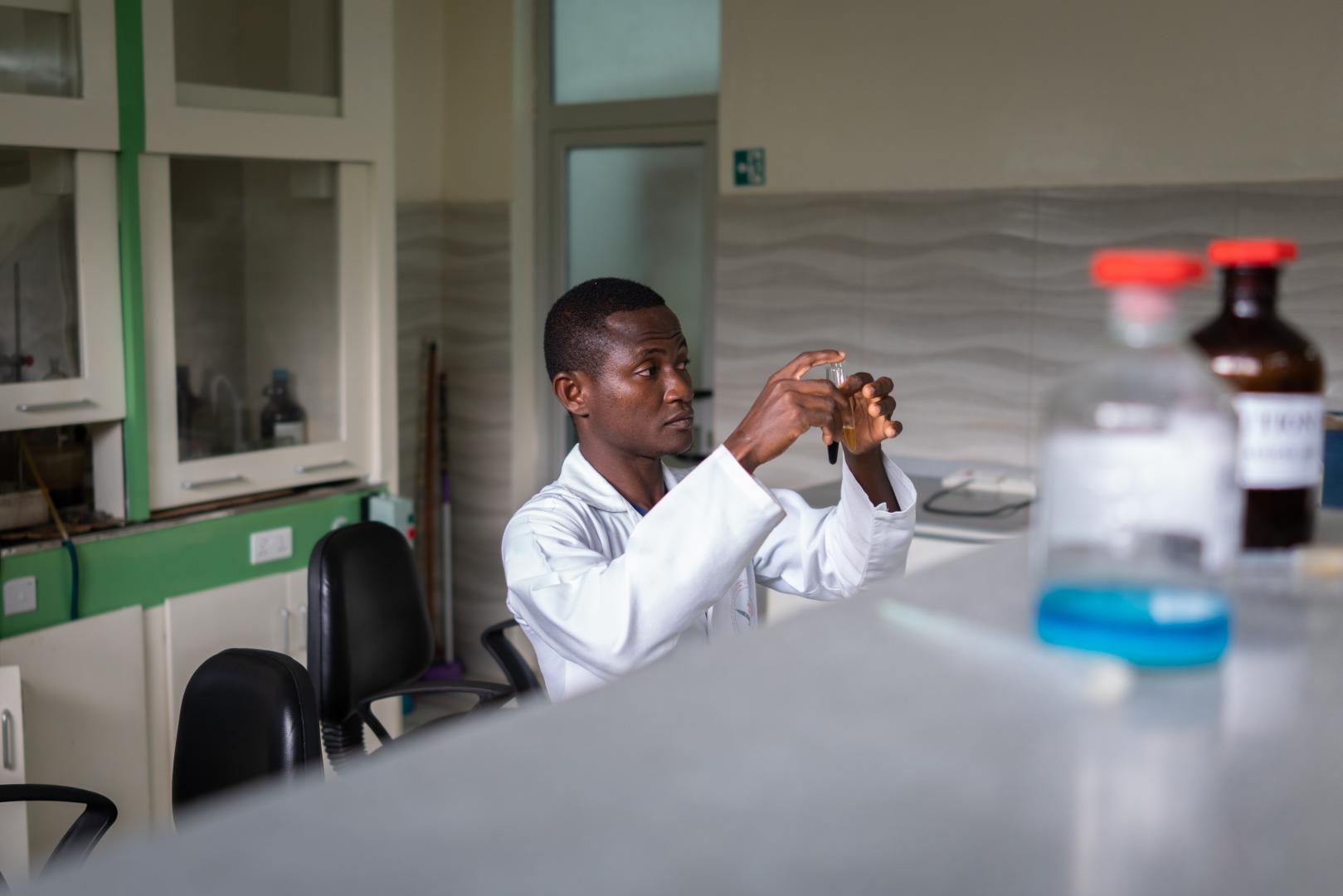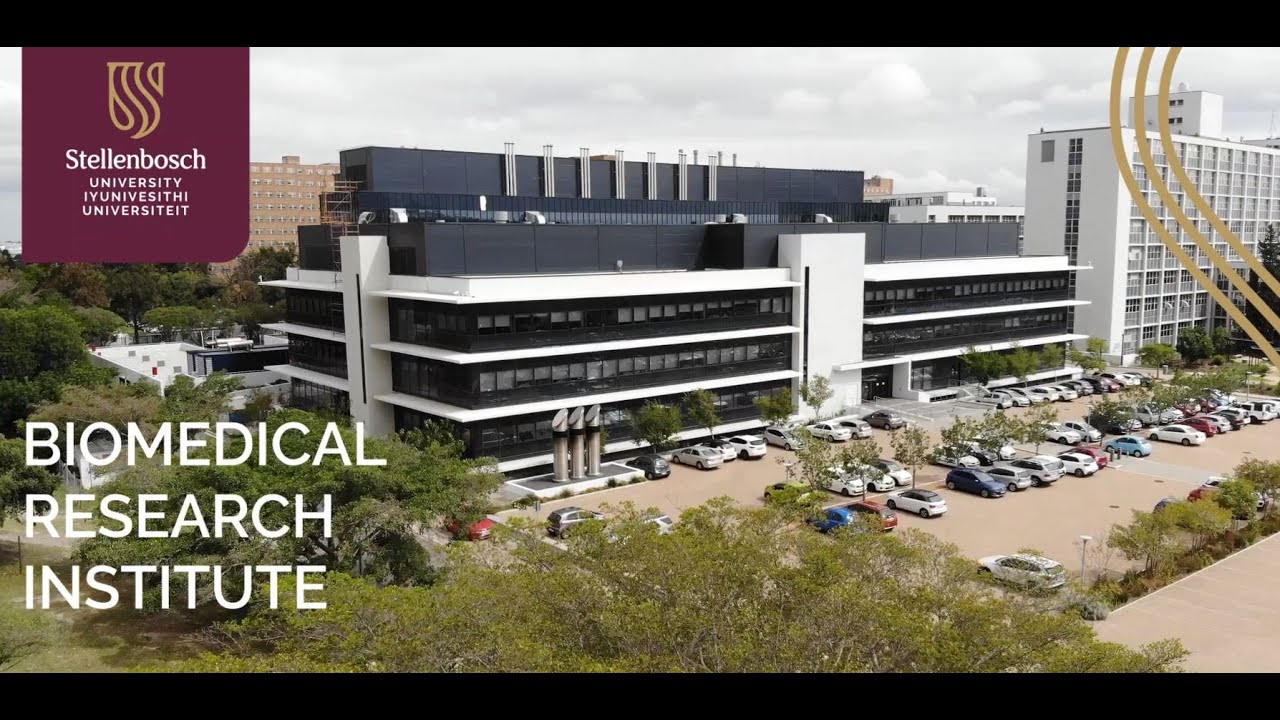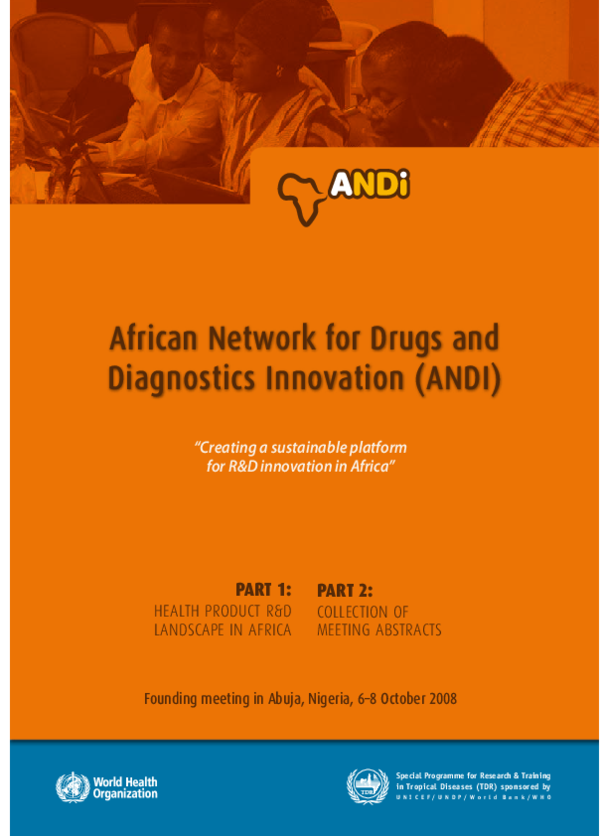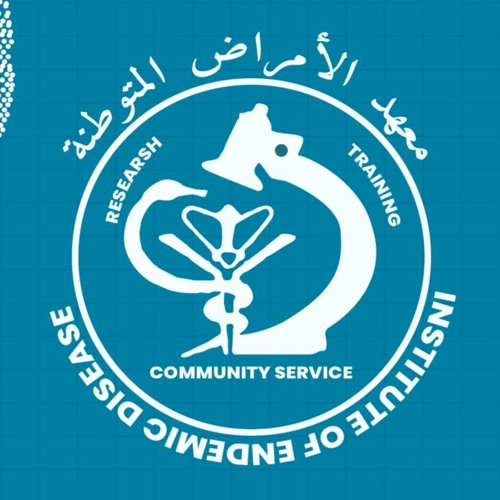Medicine Research In Africa - Nurturing Health Innovations
In this article, we delve into the dynamic landscape of medicine research in Africa, highlighting key areas of focus and showcasing some of the groundbreaking projects that are shaping the continent's healthcare future.
Author:Suleman ShahReviewer:Han JuAug 07, 202318.2K Shares828.7K Views

Africa, a continent rich in diversity and culture, has also been a hub of remarkable advancements in medicine research in Africacontinent. 17% of the world's population, who are also responsible for 25% of the burden of disease, reside in Africa. However, it only represents 2% of the global genetic data1 used in medical innovation and 3% of clinical trials.
High-income nations continue to dominate clinical research. Despite facing numerous challenges, African scientists, researchers, and healthcare professionals are making significant strides in improving healthcare, developing novel treatments, and addressing endemic diseases.
In this article, we delve into the dynamic landscape of medicine research in Africa, highlighting key areas of focus and showcasing some of the groundbreaking projects that are shaping the continent's healthcare future.
Medicine Research In Africa
Africa is no stranger to healthchallenges, with diseases like malaria, HIV/AIDS, tuberculosis, and various neglected tropical diseases affecting millions of people. These health burdens have driven the need for innovative research solutions that are not only relevant to the African context but also contribute to global health. While challenges such as limited funding, infrastructure, and brain drain persist, they have also catalyzed collaboration, creativity, and a strong sense of determination among researchers.
Clinical Trials And Drug Development
African researchers are actively participating in international clinical trials, contributing valuable data to the development of new treatments and drugs. Collaborations with pharmaceutical companies and research institutions worldwide are facilitating the testing of potential therapies for both communicable and non-communicable diseases prevalent in the region.
This engagement ensures that medical solutions are tailored to the African context and are accessible to those who need them most. Bound the world to collaborate in addressing health challenges that transcend borders.
Celebrating Success Stories
Amid the challenges, there are numerous success stories that exemplify the impact of medicine research in Africa. From the development of low-cost medical devices for maternal and child health to innovative diagnostic tools that aid in rapid disease detection, African researchers are pioneering solutions that are making a tangible difference in people's lives.
Infectious Disease Research
Malaria - Towards Eradication
Malaria remains one of the most pressing health issues in Africa. Researchers across the continent are working tirelessly to find new ways to combat this deadly disease. From developing more effective antimalarial drugs to investigating mosquito control strategies, these efforts are crucial in the fight against malaria. Notable projects include the use of genetically modified mosquitoes and innovative diagnostic tools that enable early detection and treatment.
HIV/AIDS - Progress And Challenges
Africa is disproportionately affected by the HIV/AIDS epidemic. However, significant strides have been made in antiretroviral therapy(ART) access and prevention strategies. Research initiatives focus on optimizing drug regimens, exploring long-acting treatment options, and improving early diagnosis. Moreover, studies are ongoing to better understand the social and cultural factors that influence the spread of HIV/AIDS and to tailor interventions accordingly.
Non-Communicable Diseases (NCDs)
While infectious diseases are a major concern, the burden of non-communicable diseases (NCDs) such as cardiovascular diseases, diabetes, and cancer is on the rise in Africa. Researchers are investigating risk factors unique to the continent, including genetic predispositions and lifestyle influences. Collaborative efforts between African and international institutions are leading to interventions that promote healthier lifestyles and improve NCD management.
Traditional Medicine And Ethnopharmacology
African traditional medicine has a rich historyof plant-based remedies that have been used for generations. Researchers are exploring the potential of these traditional practices in modern medicine through ethnopharmacology studies. By identifying bioactive compounds and validating the efficacy of traditional remedies, researchers aim to bridge the gap between ancient wisdom and evidence-based medicine.
Health Systems And Access
Telemedicine And Mobile Health
In regions with limited healthcare infrastructure, technologyis playing a pivotal role in improving access to medical services. Telemedicineand mobile health (mHealth) initiatives are connecting patients in remote areas with healthcare providers, enabling virtual consultations, and facilitating the monitoring of chronic conditions. These innovative approaches are transforming healthcare delivery across Africa.
Community Health Workers
Community health workers (CHWs) are instrumental in providing healthcare to underserved populations. Research is focused on optimizing CHW training, task-shifting, and integrating them into the broader healthcare system. This approach not only improves access to care but also empowers local communities to take ownership of their health.
Collaboration And Global Partnerships
The complex health challenges in Africa require collaboration between researchers, governments, NGOs, and international organizations. Global partnerships are facilitating the exchange of knowledge, expertise, and resources. Initiatives like the African Academy of Sciences and the African Network for Drugsand Diagnostics Innovation (ANDI) are fostering a supportive environment for local research capacity building and innovation.
Public Health Interventions And Policy Advocacy
Effective medicine research in Africa goes beyond laboratory experiments; it encompasses public health interventions and policy advocacy. Researchers are engaged in designing evidence-based interventions that target health promotion, disease prevention, and healthcare delivery improvement. By collaborating with policymakers, research findings are translated into actionable policies that drive meaningful change in healthcare systems.
The Role Of Data And Information Sharing
Data collection, management, and sharing are pivotal in advancing medicine research. African researchers are contributing to the global research community by sharing data on disease prevalence, treatment outcomes, and genetic diversity. Open-access initiatives are fostering transparency and enabling scientists from ar
Challenges And Considerations And How To Adress Them
The impediments to medical research in Africa primarily stem from infrastructural deficiencies, including inadequate laboratory facilities and research equipment, as well as subpar communication infrastructure. These challenges are predominantly attributed to limited financial resources.
In several African nations, the absence of adequate career frameworks inside medical schools and biomedical research institutes is a prevalent issue. Biomedical professionals who possess advanced training often find themselves engaged in mundane administrative tasks that are unrelated to or minimally connected to their specialized knowledge.
The research productivity of these experts is deemed to be low, which serves as a contributing cause to the ongoing brain drain from Africa. Simultaneously, the inadequate state of infrastructure contributes to the lack of incorporation of recent advancements in the field of medicine within the curricula of biomedical scienceprograms offered by numerous African universities. This deficiency in the curriculum fails to effectively motivate students to pursue a profession in medical research.
Many professionals in the region share the difficulty of receiving inadequate compensation for their work as medical research scientists in sub-Saharan Africa. After undergoing extensive training for a considerable duration, it is improbable that individuals would find contentment in dedicating the remainder of their professional lives to earning an income that is scarcely sufficient to cover basic expenses. This element serves as an additional contributor to the phenomenon of brain drain in Africa.
The ultimate outcome of these challenges is that, despite substantial investments in biomedical education and training in several African nations, the prevailing circumstances have remained unchanged. The following options are proposed as potential solutions:
In light of prevailing economic challenges, it is imperative for African governments to acknowledge the significant contribution of medical research to the holistic economic and social advancement of their nations.
Consequently, it is crucial for these governments to prioritize the augmentation of financial resources, with a specific focus on enhancing funding for pivotal basic research initiatives. Governments have the ability to achieve this through partial sponsorship and by obtaining monies from bilateral donors that are particularly designated for medical research and are made accessible through competitive funding processes based on research priority areas.
While there are now certain financing arrangements in place, it would be advantageous to enhance and broaden the scope of funding across different categories, with the aim of supporting scientists at all stages of their professional growth.
For instance, there exist initiatives aimed at facilitating the education and development of scientists at all stages of their academic journey, including those pursuing a Masters degree, a PhD, a postdoctoral position, and those who have already acquired substantial expertise in their field.
Efforts to strengthen the capacity of government departments in charge of interpreting and putting research findings into practice should go hand in hand with the allocation of funding for research projects. This alignment is crucial in order to substantiate the need for more funding.
There is a need for colleges and universities to revise their training curriculum in order to place renewed emphasis on the significance of medical research in the professional growth of students who may contemplate pursuing a research-oriented career in the future.
A certain proportion of students who complete their studies at these educational institutions exhibit a lack of awareness regarding potential employment opportunities in the field of research. It would be advisable to consider inviting distinguished research scientists during university open days to deliver presentations on the various career prospects available in the field of medical research.
The underrepresentation of African role models and the perceived disillusionment among existing role models may have contributed to the discouragement of potential candidates from pursuing a career in research.
Once again, this issue is interconnected with the insufficient allocation of funds for individuals currently engaged in research, creating the perception that pursuing a career in research may not be a rewarding endeavor.
Ensuring equitable remuneration for African scientists, commensurate with their counterparts in wealthy nations, is imperative in order to foster their development and enhance their competitiveness in securing international research funding. This would result in the allocation of additional time for focused research efforts, leading to enhanced research outputs and improved opportunities on the global stage.

Biomedical Research Institute
Ethical Considerations And Cultural Sensitivity
In the pursuit of medical advancements, it's crucial to address ethical considerations and cultural sensitivities that arise in the context of medicine research in Africa. Researchers are mindful of the potential exploitation of vulnerable populations and work diligently to ensure that participants' rights and dignity are respected. Cultural beliefs and practices are also taken into account to ensure that research interventions are culturally appropriate and do not infringe upon local norms.
Emerging Technologies And Innovation
Africa is not only adapting existing medical technologies but is also at the forefront of developing innovative solutions tailored to its unique challenges. With the increasing penetration of smartphones, researchers are leveraging mobile apps for health education, disease monitoring, and even clinical trials. Additionally, the application of artificial intelligence(AI) and machine learning in analyzing healthcare data holds promise for early disease detection and personalized treatment recommendations.
Capacity Building And Education
Sustainable progress in medicine research necessitates the development of local research capacity and the nurturing of young talent. African institutions are investing in educational programs, scholarships, and mentorship opportunities to empower the next generation of healthcare professionals and researchers. These efforts are essential for reducing the brain drain and fostering a self-reliant research ecosystem.
Medical Research Institutions In Africa: Nurturing Scientific Progress
Africa is home to a multitude of esteemed medical research institutions that are at the forefront of pioneering breakthroughs in healthcare. These institutions play a pivotal role in addressing the unique health challenges faced by the continent and contribute significantly to global health research. Let's explore some of the prominent medical research institutions in Africa and the impactful work they are doing.
African Institute Of Biomedical Science And Technology (AiBST)
Based in Zimbabwe, AiBST is a center of excellence in biomedical science and technology research. This institution focuses on bridging the gap between research and application by fostering collaborations with industry partners. AiBST's research spans infectious diseases, diagnostics, drug development, and genetic studies, making a profound impact on healthcare in the region.
Kenya Medical Research Institute (KEMRI)
KEMRI, located in Kenya, is a premier medical research institution renowned for its contributions to public health. Its multidisciplinary research efforts encompass malaria, HIV/AIDS, tuberculosis, and emerging infectious diseases. KEMRI's expertise in epidemiology, virology, and clinical trials has led to significant advancements in disease control and management strategies.
Pasteur Institute Of Algeria
Dedicated to microbiology and infectious disease research, the Pasteur Institute of Algeria is a cornerstone of medical research in North Africa. Its focus on understanding endemic diseases such as cholera, tuberculosis, and leishmaniasis has contributed to the development of diagnostic tools and vaccines that address critical health concerns in the region.
Institute Of Endemic Diseases (IEND)
Nigerian-based IENDis dedicated to researching and combating diseases that disproportionately affect West Africa. By conducting studies on diseases like onchocerciasis (river blindness) and lymphatic filariasis, IEND is instrumental in shaping disease control programs and improving the quality of lifefor affected communities.
South African Medical Research Council (SAMRC)
SAMRC, located in South Africa, is a pioneering institution that conducts research across a wide spectrum of health issues. Its work ranges from infectious diseases to non-communicable diseases, genetics, and health systems research. SAMRC's collaborations with international partners contribute to global efforts in advancing medical knowledge and intervention strategies.
Institut De Recherche En Sciences De La Santé (IRSS)
IRSS, situated in Burkina Faso, is a vital research center specializing in health sciences. With a focus on tropical diseases such as malaria, IRSS conducts research that informs public health policies and contributes to the development of innovative interventions. Its studies on vector control and disease transmission dynamics are especially noteworthy.
National Institute For Medical Research (NIMR), Tanzania
NIMR is a leading research institution in Tanzania, engaging in diverse research areas such as clinical trials, epidemiology, and public health. Its work on neglected tropical diseases, maternal and child health, and health systems strengthening has a transformative impact on healthcare outcomes in the country.
Institute Pasteur De Madagascar
This institution, located in Madagascar, conducts research on infectious diseases prevalent in the region. Its studies on plague, tuberculosis, and emerging viral infections have led to improved diagnostics and surveillance strategies. The Institute Pasteur de Madagascar is a vital player in safeguarding the health of the island nation and beyond.
West African Centre For Cell Biology Of Infectious Pathogens (WACCBIP)
Based in Ghana, WACCBIPfocuses on understanding the biology of infectious pathogens to develop innovative treatments and diagnostics. Its collaborative research approach involving multidisciplinary teams has led to breakthroughs in malaria research and has earned recognition for its role in building research capacity in the region.
National Institute For Communicable Diseases (NICD), South Africa
NICD is a premier institution dedicated to the surveillance, prevention, and control of communicable diseases in South Africa. Its work extends to emerging infectious diseases, vaccine development, and antimicrobial resistance. NICD's contributions are integral to maintaining public health readiness and responding to health threats effectively.
These remarkable medical research institutions exemplify Africa's commitment to scientific advancement and healthcare innovation. Through collaboration, cutting-edge research, and the dedication of passionate researchers, these institutions are shaping the trajectory of healthcare in Africa and making invaluable contributions to global medical knowledge.
People Also Ask
What Percentage Of Clinical Trials Are In Africa?
The percentage of clinical trials conducted in Africa can vary over time and depending on the specific research focus. Historically, Africa has participated in a relatively small proportion of global clinical trials, often due to various factors including regulatory challenges, resource limitations, and ethical considerations. However, clinical trial participation has been increasing in certain areas, particularly for diseases that disproportionately affect the continent, such as malaria, HIV/AIDS, and tuberculosis.
Which Country Has The Best Medical Doctors In Africa?
It's challenging to definitively determine which country has the best medical doctors in Africa as medical expertise can vary widely across the continent. Multiple countries have well-respected medical professionals who contribute significantly to healthcare. Countries with established medical education systems, robust healthcare infrastructure, and a strong focus on medical research and training are likely to have a high caliber of medical professionals. South Africa, Egypt, Kenya, Nigeria, and Morocco are among the countries often recognized for their medical expertise.
Where Is The Most Medical Research Done?
It's challenging to definitively determine which country has the best medical doctors in Africa as medical expertise can vary widely across the continent. Multiple countries have well-respected medical professionals who contribute significantly to healthcare. Countries with established medical education systems, robust healthcare infrastructure, and a strong focus on medical research and training are likely to have a high caliber of medical professionals. South Africa, Egypt, Kenya, Nigeria, and Morocco are among the countries often recognized for their medical expertise.
Conclusion
As we reflect on the current state of medicine research in Africa, it's clear that the continent is poised for significant growth and transformation in the field of healthcare. With innovative solutions being developed to tackle endemic diseases, improve health systems, and harness traditional knowledge, Africa is emerging as a center for health innovation. While challenges persist, the resilience, creativity, and dedication of African researchers are driving progress that will ultimately benefit both the continent and the world.
For more insights on health and innovation, visit Urban Kenyans, a platform dedicated to showcasing Africa's contributions to various fields, including medicine and healthcare.

Suleman Shah
Author
Suleman Shah is a researcher and freelance writer. As a researcher, he has worked with MNS University of Agriculture, Multan (Pakistan) and Texas A & M University (USA). He regularly writes science articles and blogs for science news website immersse.com and open access publishers OA Publishing London and Scientific Times. He loves to keep himself updated on scientific developments and convert these developments into everyday language to update the readers about the developments in the scientific era. His primary research focus is Plant sciences, and he contributed to this field by publishing his research in scientific journals and presenting his work at many Conferences.
Shah graduated from the University of Agriculture Faisalabad (Pakistan) and started his professional carrier with Jaffer Agro Services and later with the Agriculture Department of the Government of Pakistan. His research interest compelled and attracted him to proceed with his carrier in Plant sciences research. So, he started his Ph.D. in Soil Science at MNS University of Agriculture Multan (Pakistan). Later, he started working as a visiting scholar with Texas A&M University (USA).
Shah’s experience with big Open Excess publishers like Springers, Frontiers, MDPI, etc., testified to his belief in Open Access as a barrier-removing mechanism between researchers and the readers of their research. Shah believes that Open Access is revolutionizing the publication process and benefitting research in all fields.

Han Ju
Reviewer
Hello! I'm Han Ju, the heart behind World Wide Journals. My life is a unique tapestry woven from the threads of news, spirituality, and science, enriched by melodies from my guitar. Raised amidst tales of the ancient and the arcane, I developed a keen eye for the stories that truly matter. Through my work, I seek to bridge the seen with the unseen, marrying the rigor of science with the depth of spirituality.
Each article at World Wide Journals is a piece of this ongoing quest, blending analysis with personal reflection. Whether exploring quantum frontiers or strumming chords under the stars, my aim is to inspire and provoke thought, inviting you into a world where every discovery is a note in the grand symphony of existence.
Welcome aboard this journey of insight and exploration, where curiosity leads and music guides.
Latest Articles
Popular Articles


